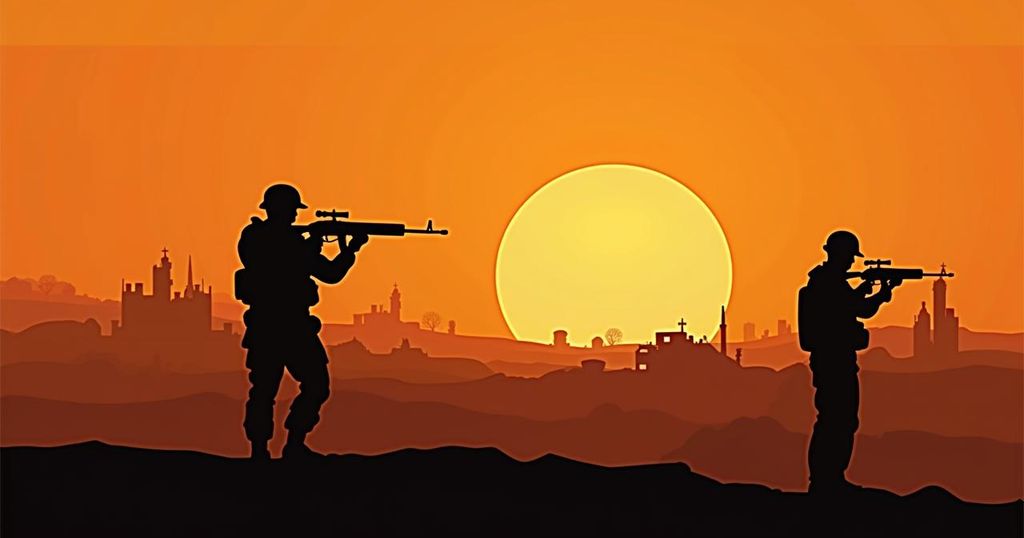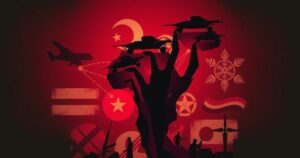Future Implications Following the Assassination of Hassan Nasrallah

The assassination of Hezbollah leader Hassan Nasrallah marks a potential turning point in the conflict between Israel and Hezbollah, with implications for regional stability. Hezbollah is likely to retaliate despite suffering losses, while Iran may leverage its allied militias in response. Israel is set to continue its military operations to neutralize Hezbollah’s capabilities, heightening the risk of broader conflict.
The recent assassination of Hassan Nasrallah, the long-time leader of Hezbollah, marks a significant escalation in the ongoing conflict between Israel and the Lebanese militant organization. This event potentially ushers in a more extensive and destructive regional conflict involving both Iran and the United States. The future trajectory of this volatile situation hinges on the responses of three principal entities: Hezbollah, Iran, and Israel. Hezbollah is currently facing severe setbacks following the assassination, having lost numerous key commanders and experiencing a crippling impact on its communication channels. The U.S.-based Middle East security analyst Mohammed Al-Basha notes, “The loss of Hassan Nasrallah will have significant implications, potentially destabilising the group and altering its political and military strategies in the short term.” Notwithstanding these challenges, Hezbollah remains steadfast in its intentions to continue fighting, exhibiting pressure from its ranks to retaliate against Israel utilizing its substantial arsenal of long-range missiles. Any escalatory action, particularly a large-scale missile attack, could provoke a devastating response from Israel, targeting Lebanon’s infrastructure and possibly extending retaliation to Iran. In turn, Iran perceives the assassination not only as a blow to Hezbollah but also to its influence in the region. Following the incident, Iran declared five days of mourning and has initiated emergency measures to safeguard its leadership. Historically, Iran has displayed restraint in its retaliatory actions, evidenced by its non-response to the assassination of Hamas leader Ismail Haniyeh. Yet, hardline elements within the Iranian regime might urge for a form of retribution. Iran commands a network of heavily-armed militias across the Middle East, collectively termed the “Axis of Resistance,” which includes groups in Yemen, Syria, and Iraq. Tehran may potentially leverage these militias to intensify assaults on Israeli and U.S. interests in the region, ensuring that any response avoids full-scale warfare. From Israel’s perspective, the assassination solidifies its commitment to an aggressive military strategy rather than conceding to a ceasefire suggested by various international actors. Israel’s military strategists contend that Hezbollah is currently vulnerable and are likely to pursue operations aimed at mitigating the missile threats emanating from Lebanon. Achieving such objectives, however, will likely necessitate ground troop involvement, as recent footage from the Israel Defense Forces indicates ongoing preparations for potential incursions into southern Lebanon. Yet, amid such military actions, Hezbollah has been preparing for an inevitable confrontation for nearly two decades, framing any Israeli invasion as a “historic opportunity” for their cause. In summation, the aftermath of Hassan Nasrallah’s assassination sets the stage for potential escalation across the region, influenced deeply by the calculated responses of Hezbollah, Iran, and Israel. The situation remains fluid, and the prospects for a larger conflict loom large as each actor weighs their next moves carefully.
The article addresses the escalating tensions in the Middle East following the assassination of Hezbollah’s leader, Hassan Nasrallah, by Israel. It outlines the potential reactions from Hezbollah, Iran, and Israel, emphasizing the intricate dynamics that govern their military strategies and political calculations. This context is essential to understand the implications of the assassination and its potential consequences for regional stability.
The assassination of Hassan Nasrallah represents a critical juncture in the ongoing conflict between Hezbollah and Israel, with serious repercussions for Iran’s regional stance. As Hezbollah contemplates its path forward amidst significant losses, Iran assesses its potential responses through its network of allied militias, while Israel remains firm in its military approach. The future of the region hangs in a delicate balance, as all parties grapple with the ramifications of this significant event.
Original Source: www.bbc.com





